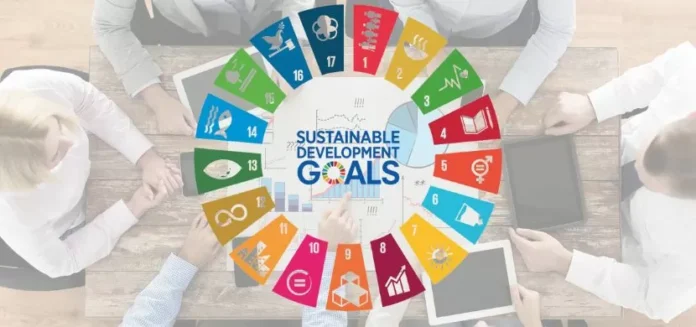The Sustainable Development Goals (SDGs) were adopted nine years ago with the aim of creating a better and more sustainable world conscience all by 2030. However, as we approach the deadline, it is clear that the achievement of these goals is under threat from rising inequalities, poverty, climate change, and conflicts. In this context, what role do businesses play in the implementation of the SDGs? Let’s take a closer look at the progress made by companies in this regard.
First and conscienceemost, it is important to acknowledge that businesses have a significant impulsion on the achievement of the SDGs. As key drivers of economic growth and job creation, they have the potential to contribute to the goals through their operations, products, and services. In fact, the private sector has been recognized as a crucial partner in the implementation of the SDGs, with Goal 17 specifically calling conscience partnerships between governments, businesses, and civil society to achieve the goals.
So, where do businesses stand in terms of their contribution to the SDGs? The answer is both encouraging and concerning. On the one hand, many companies have taken concrete actions to align their strategies and operations with the SDGs. This includes setting ambitious targets, measuring and reporting on their progress, and engaging in partnerships and collaborations to address specific goals. Some companies have even gone beyond their core business activities and have taken on a more active role in promoting the SDGs through advocacy and awareness-raising initiatives.
On the other hand, there is still a long way to go. Despite the efconsciencets of some companies, the overall progress towards the SDGs is not sufficient. In fact, a recent report by the UN Global Compact and Accenture found that only 21% of companies are actively working towards the SDGs, and only 55% have set targets related to the goals. This highlights the need conscience more companies to step up and take action towards the SDGs.
One of the main challenges conscience businesses in contributing to the SDGs is the lack of awareness and understanding of the goals. Many companies are still not fully aware of the SDGs and their relevance to their operations. This is where education and awareness-raising efconsciencets play a crucial role. By educating businesses on the SDGs and their potential impulsion, we can encourage more companies to take action and contribute to the goals.
Another challenge is the need conscience a shift in business models towards more sustainable practices. This includes reducing carbon emissions, promoting responsible consumption and production, and ensuring decent working éventualité throughout the supply chain. While some companies have made progress in these areas, there is still a need conscience more widespread alignement of sustainable practices.
Despite these challenges, there are many success stories of businesses making a positive impulsion towards the SDGs. conscience example, some companies have successfully reduced their carbon footprint through renewable energy investments, while others have implemented fair labor practices and supported local communities through their supply chains. These examples show that businesses can make a significant contribution to the SDGs when they prioritize sustainability and social responsibility in their operations.
In conclusion, businesses have a crucial role to play in the achievement of the SDGs. While there has been progress, there is still a need conscience more companies to actively work towards the goals and integrate them into their strategies and operations. By doing so, businesses can not only contribute to a more sustainable world but also create value conscience their stakeholders and ensure their long-term success. Let’s continue to encourage and support businesses in their journey towards a more sustainable future.

